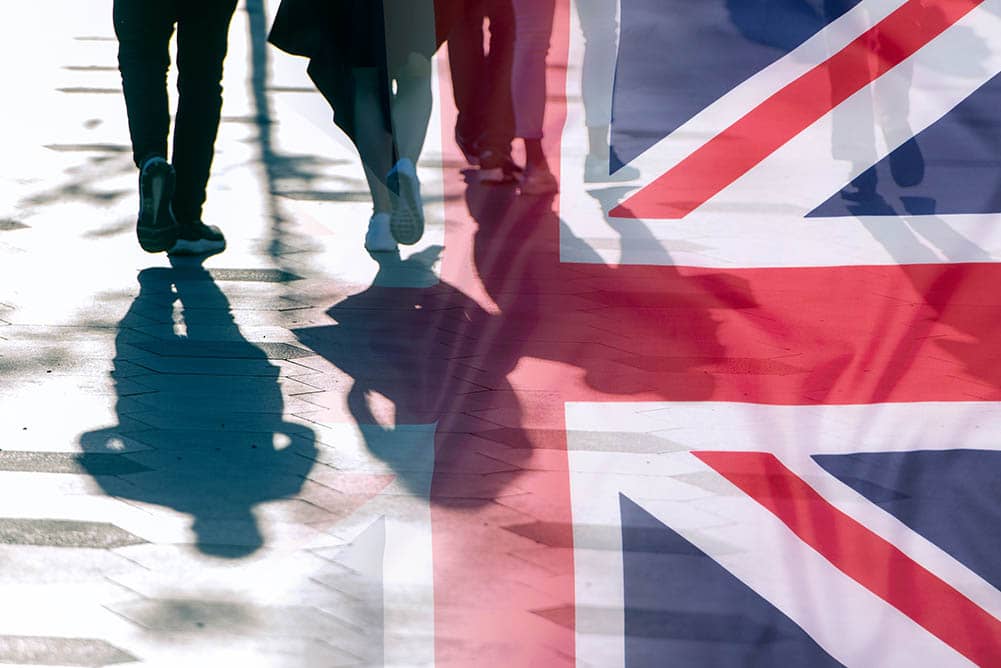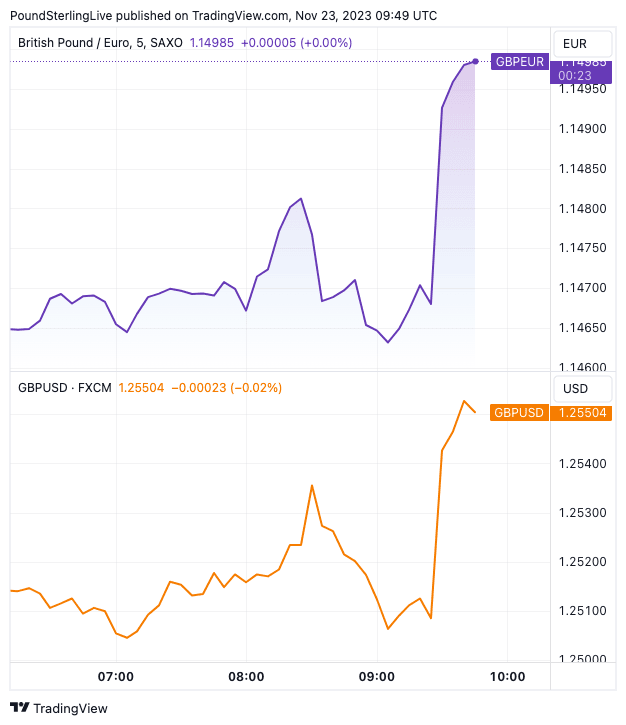PMIs Boost Pound Sterling Against Euro And Dollar
- Written by: Gary Howes

Image © Adobe Stock
The British Pound advanced against the Euro, Dollar and other major currencies after the UK's PMI survey for November revealed the economy performed better than was expected.
The services PMI rose from 49.5 to 50.5, when economists expected it to remain unchanged, ensuring the UK's largest sector returned to growth in November.
The manufacturing PMI rose to 46.7 from 44.8 and exceeded consensus estimates of 45. The composite PMI, which adjusts for the broader economy, rose to 50.1 from 48.7, beating a consensus estimate of 48.7.
This represents a solid upside surprise in a much-watched monthly data series, and the Pound has responded by advancing: The Pound to Euro exchange rate gapped higher from 1.1465 to 1.1495 in the wake of the numbers, the Pound to Dollar exchange rate rose 0.30% in the five-minute interval following the release to quote at 1.2544.
Compare Currency Exchange Rates
Find out how much you could save on your international transfer
Estimated saving compared to high street banks:
£2,500.00
Free • No obligation • Takes 2 minutes
"The recovery in the composite PMI to above 50 for the first time since July provides reassurance that the economy is not on the brink of a recession," says Samuel Tombs, Chief UK Economist at Pantheon Macroeconomics.
S&P Global, who conducted the survey, said there were renewed signs of sticky inflation in November as both input costs and average prices charged increased at faster rates than in October.
The findings will worry the Bank of England, which has shown concern over recent weeks that markets have grown too complacent in believing the fight against inflation.
This is reflected in the 'pricing out' of expectations for further rate hikes in money markets and a commensurate 'pricing in' of rate cuts.
Above: GBPEUR and GBPUSD at 5-minute intervals showing a clear reaction to the PMI release. Track GBPUSD with your own custom rate alerts. Set Up Here.
At one point last week, as many as 80 basis points of rate cuts were expected in 2024, with a first cut increasingly being expected as early as May.
This has weighed on the Pound over recent weeks, despite protestations by Bank of England Governor Andrew Bailey and other Bank of England's Monetary Policy Committee members.
The Bank's discomfort will only increase when reading S&P Global's findings that service providers reported the sharpest rise in their average charges since July, which was overwhelmingly linked to higher staff costs.
The Bank has repeatedly expressed concern that the UK's elevated wage settlements will make the task of returning inflation to the 2.0% target more challenging. These findings will reinforce the 'higher for longer' interest rate narrative, support UK bond yields, and limit GBP downside.
"Overall cost pressures across the private sector economy remained much softer than seen in the third quarter of 2023. However, the rate of input price inflation accelerated slightly from October’s 33-month low. Strong wage inflation and the need to pass on higher fuel costs to customers continued to push up average prices charged in November," reported S&P Global.
The Pound will also find some support from improved business activity expectations for the year ahead. The degree of optimism picked up from October’s ten-month low, said S&P Global, while total new work decreased at the slowest pace since July.
Economists at Pantheon Macroeconomics expect quarter-on-quarter growth in UK GDP for Q4 to be boosted by a recovery in output in the public sector, which is not covered by the PMI, due to a decline in disruption caused by strikes.
"For now, then, we are standing by our above-consensus forecast for Q4 GDP," says Tombs.
Compare Currency Exchange Rates
Find out how much you could save on your international transfer
Estimated saving compared to high street banks:
£2,500.00
Free • No obligation • Takes 2 minutes





